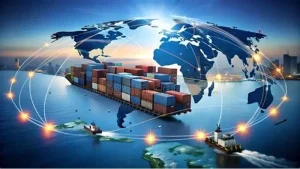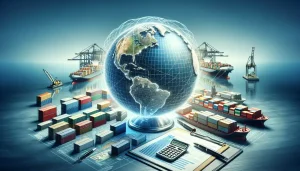
International trade has always been a powerful engine of global economic development. Ancient trade routes such as the Silk Road promote today’s digital market, borders drive innovation and the exchange of goods and services between nations. The center of this global exchange is Finance -Intelligence -Buban, which guarantees smooth, secure and profitable transactions. Understanding how finance supports international trade is equally necessary for businesses, investors and policymakers.
Financial structure of global trade
International trade is not just about buying and selling products across borders; It is a complex process that requires a solid financial structure. Businesses must consider currency ups and downs, payment methods, fees, shipping costs, and credit risks.
Currency exchange and risk management.
One of the most important financial aspects of international trade is dealing with various currencies. Due to the political, economic and market status, there are daily ups and downs in the exchange rate. These ups and downs can greatly affect profits.
To combat this, companies use financial instruments such as hedging, forward contracts and currency swaps. These devices help stabilize costs and reduce risks, allowing companies to plan their operations.
Trade financing and credit facilities
Businesses play an important role in enabling businesses to operate, especially small and medium-sized enterprises (SMEs). Many international agreements require initial capital for production, transportation and insurance.

Business financing solutions, such as letters of credit, export credit guarantees and supply chain financing, ensure that companies have the necessary funds to carry out their transactions without facing a lack of liquidity.
Financial institutions also help build trust between trading partners. For example, a letter of credit issued by a bank guarantees that the exporter will receive payment after payment is received, reducing the risk of fraud or default.
Role of technology in trade finance
Digital transformation has rebuilt finance in international trade. Modern technologies such as blockchain, Artificial Intelligence (AI) and digital payment systems are making global transactions faster, transparent and secure. For example, blockchain, tamper-proof business records make it possible to reduce paperwork and promote trust. Similarly, AI-managed analytics help companies predict business trends and manage risks more effectively.
Global standards and compliance
International trade is greatly affected by global regulations, including anti-mine laundering (AML) laws, prohibitions and tax rules. Financial professionals must ensure that transactions follow these rules to avoid penalties and maintain reliability. Strict financial standards instill confidence among global partners and ensure long-term stability in international markets.
conclusion
Finance is the lifeblood of international trade, providing the stability and equipment needed to navigate complex global transactions. From currency risk management to business financing and technology exploitation, finance ensures that businesses can thrive in the world associated with transit.

As globalization continues, the financial side of international trade will be important – not only commercial success but also the future of global economic development.




